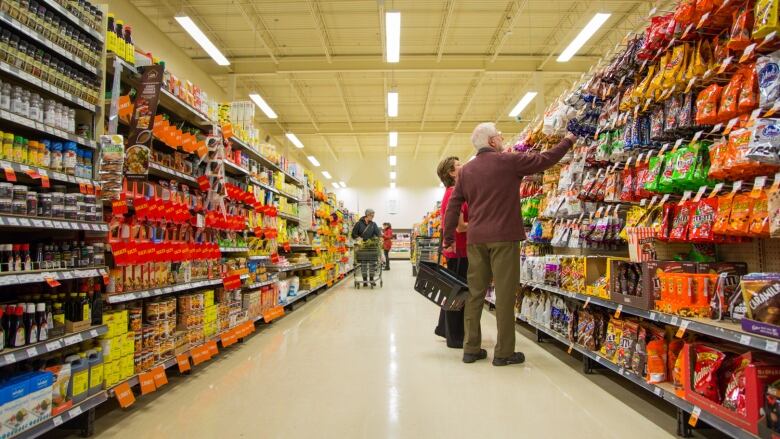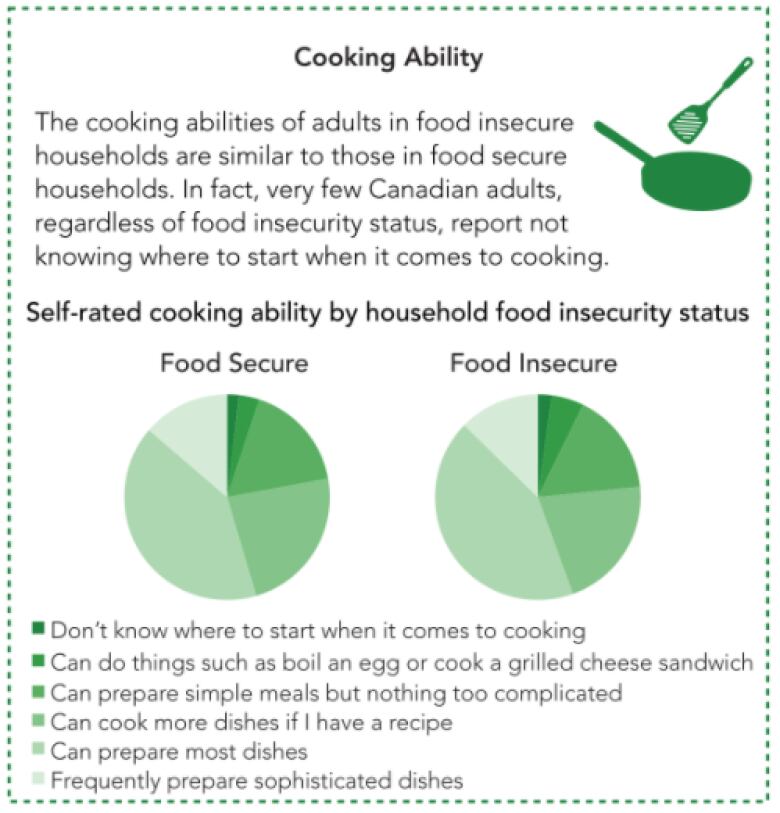Prejudice may push low-income shoppers to unhealthy options
Guelph researcher finds stigma is more influential than finances when it comes to diet choices

An unhealthy diet is not just a result of food insecurity but reflects the socialstigma that surrounds it, according to University of Guelph researcher Kelly Hodgins.
"Ourassumptions and judgements against those living in poverty, suffering from food insecurity, or living in situations of low income, are actually helping to maintain this inequality," she said.
`It has nothing to do with the individuals level of knowledge or interest in providing their family with healthy food.- Kelly Hodgins, University of Guelph
Hodgins' research and interviews with alternative foodoutlets including co-ops andfarmers markets revealedprejudice against low-income Canadian consumers:findings that suggest false stereotypes have more of an effect than financial constraints.
Health bubble
In her research Hodgins was confronted with negative stereotypes for the more than a million Canadian households that have reported being food insecure.
One participant told Hodgins that "a lot of low-income people are used to highly processed foods and may not buy fresh orlocal if it were less expensive," while another suggested that "they haven't made the connection that food is going into my body, and that's the most important thing that I can do for my own health."
Both statements, she says, have no supporting proofbut aren't surprising coming from the bubble of higher-price alternative foodoutlets.

"I wasn't shocked, but it disturbed me to think that they do play into this larger societal discourse," she said. "There was thisignorance or lack of awareness, lack of concern for the consumers who weren't there."
Low-income, not low-effort
Hodgins says the assumption that an unhealthy diet ispart of a low-income lifestyle, is false.
"It has nothing to do with the individual's level of knowledge or interest in providing their family with healthy food," she said."Just looking at cost alone and not looking at other circumstances that come with a low-income is too easy."
She says that conclusion ignores all the external factors, from public transit schedules to people having to workmultiple jobs.
"Your life can be really tied up in just getting by."
PROOF, a food insecurity research team based out of the University of Toronto, found that in areas like food preparation skills and cooking ability,there was little difference between food secure and insecure households.

The only difference was that 84 per cent of food insecure households reportusing a budget for grocery trips, while only 43 per cent of food secure households make a financial budget for food shopping.
Dining with dignity
Community groups are working to provideoptions to low-income householdsthat may only have access to food banks.
Locations like The Working Centre in Kitchener,The Seed, and the Guelph Community Health Centre have a "forward focused agenda," she said. "Providing dignified access to nutritious food for all Canadians" in this region.
The key part, she says,is dignity. Creating spaces where low-income shoppers feel like they can make choices for their diet, and not have it made for them.
"To broadly label everyone of a socio-economic class as having the same lived experience, and the same level of food skills or food knowledge or desire?" said Hodgins.
"I don't think that's fair at all."












_(720p).jpg)


 OFFICIAL HD MUSIC VIDEO.jpg)
.jpg)



























































































